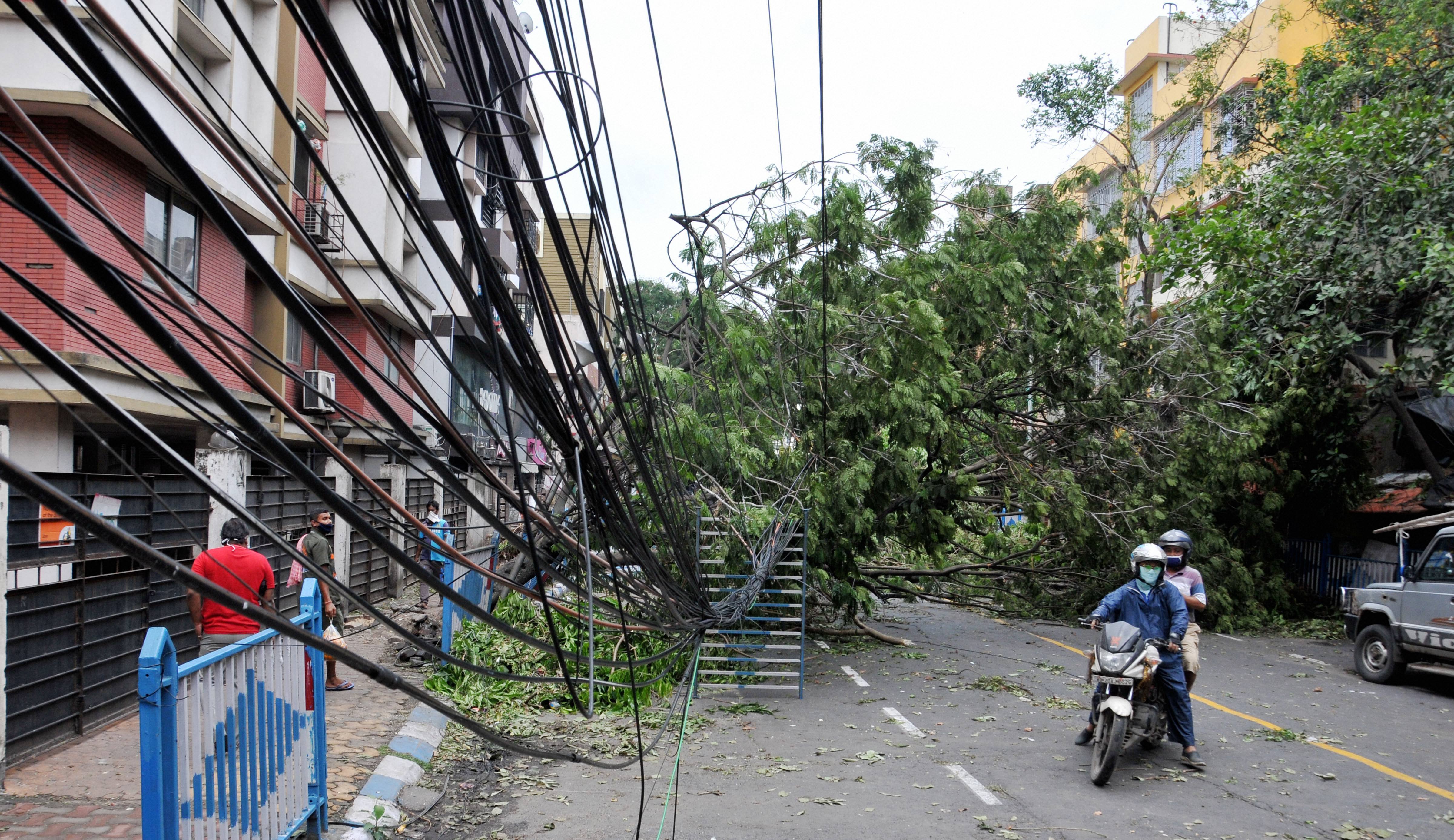Cyclone Amphan unleashed more than howling winds and blinding rain; it plunged the City of Joy into fathomless darkness and misery. Neighbourhoods like ours on the southeastern fringes went without power for six days at a stretch and then had to contend with a temporary connection in an on-off sequence in the days that followed.
But instead of dwelling on the trauma, we thought of the takeaways and lessons from the worst storm in nearly 300 years. It tested our resilience like never before. We learnt to survive in the heat and darkness, making do with the bare minimum. If Covid-19 had drilled isolation and social distancing into our psyche, Amphan brought in its wake the ability to come to terms with the destructive force of nature that disrupted all vestiges of serenity and routine in our lives.
Till May 20, the work-from-home drill was tick-tocking with precision. The cyclone shattered phone connectivity and internet links, bringing us back to office at a time when Covid-19 cases had started peaking.
In the aftermath of Amphan, as we grappled with the lack of water and electricity, a generator van was called in for a few hours. Even neighbours who seldom bond joined hands and took turns to fill up overhead tanks, ensure drinking water, charge inverters, or offer solace to the ailing and bedridden members of the family. I learnt a great deal from Dipu, the generator van driver-cum-electrician: how to connect the wires to our main supply line, the way to use kitchen pliers in the absence of proper tools, making do with Sellotape till the shops opened.
The same bonding was visible when it came to getting fallen trees cleared and trying to grab the attention of the Calcutta Electric Supply Corporation. The residents protested and blocked roads, gheraoed the police station, stood for hours at a CESC office to have a repair van allotted (which was immediately hijacked by a political goon) and even pooled in money to pay for “food and refreshments” for a team of workers who tried to fix the problem and brought us back electricity, albeit temporarily.
This scenario was replicated in other distressed localities too. At Parnasree, my cousin who is a professor of English was characteristically upbeat even after a week without electricity. “After a few days it wasn’t so bad. It reminded me of boot camp during Scouts and Guides! Sleeping on a cold ground under the stars and candles for light and eating Maggi, which is what we did when I was too tired to cook!” she said. “There was no TV or Internet or phone connectivity, so I actually took out my books of poetry and sat and read on the terrace.” When her husband grumbled about the lack of connectivity, she urged him to “look at the garden and enjoy the breeze because it was a kind of eco-tourism that people pay through their noses to get”.
Their German Shepherd, Pepper, swatted mosquitoes all night “while we fanned her in return”, sleeping on the floor with the balcony door open since no thief can enter because the dog would bring the house down! And in an Amphan paradox, while their stately radhachura (Peltophorum pterocarpum) was felled by the cyclone, the kamini (Murraya paniculata) has begun to bloom profusely!
We have all come to realize that less is more. We have consciously stopped squandering water or leaving extra lights on. Even the octogenarians in our neighbourhood are managing without air conditioners and geysers, some of the advantages of city life they have grown accustomed to. As the country begins to open up after the lockdown, the vestiges of the cyclone will continue to leave as indelible a mark as the coronavirus.











